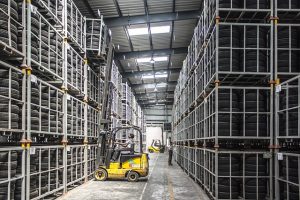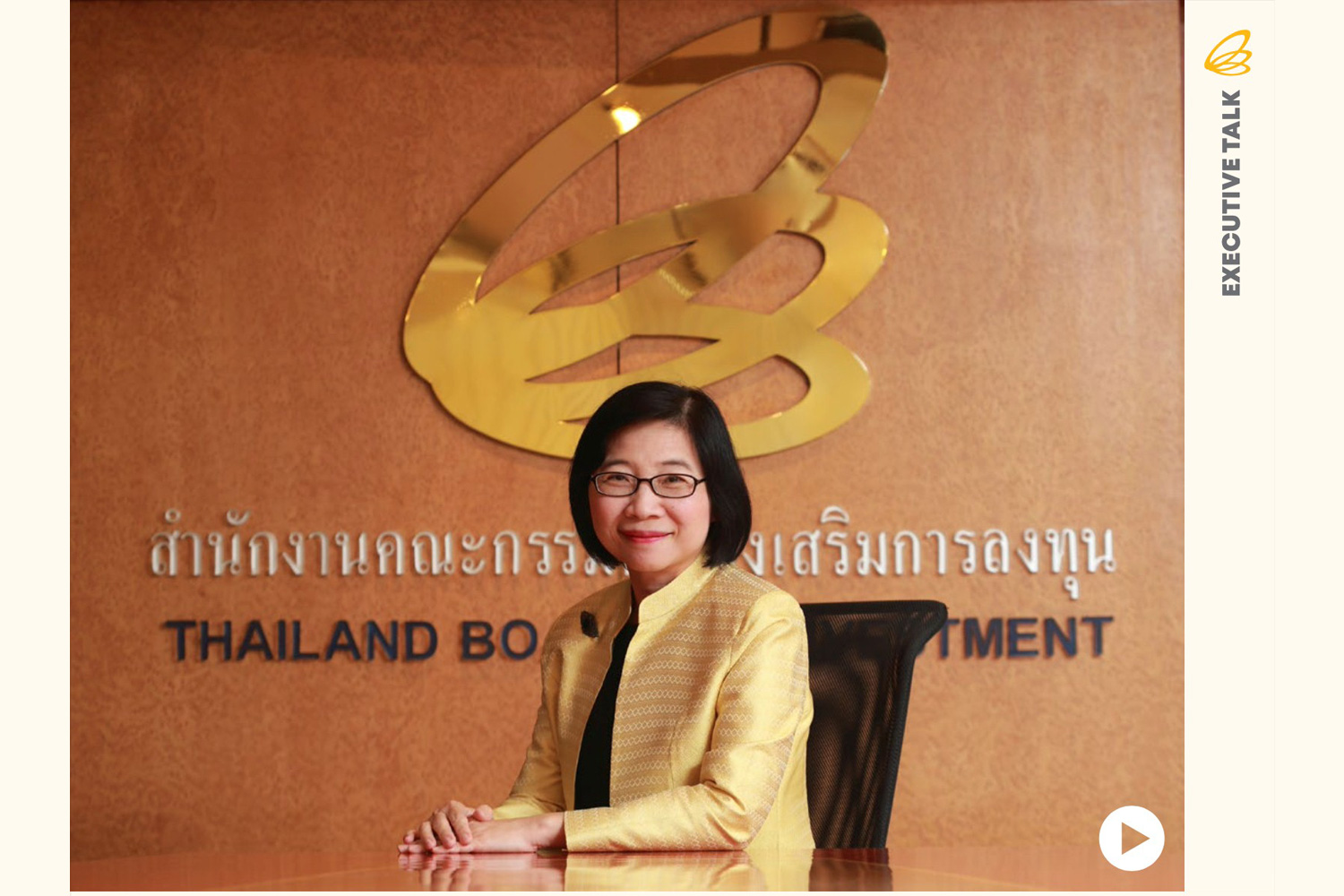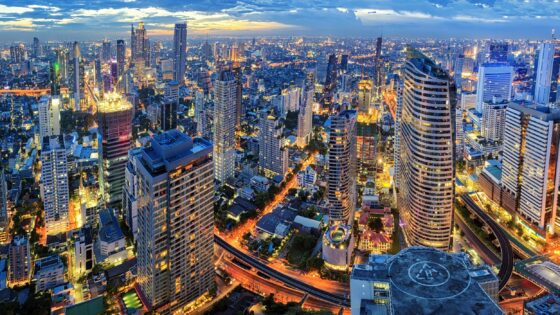“The BOI’s activities are about much more than granting tax and non-tax incentives to attract investment. With the ongoing technology disruption and the highly uncertain world, Thailand needs to be resilient.
One of the BOI’s objectives in this respect is to ensure our incentive policies are used as a tool to transform Thailand’s economic structure in the face of these rapid changes.” – Ms Duangjai Asawachintachit, BOI Secretary General
The emergence of new digital technologies such as big data, the Internet of Things (IoT), Artificial Intelligence (AI), machine learning, robotics, 3D printing and biotechnology, along with growing concerns over climate change, have shaped both people’s ways of life and business’s activities worldwide, sparking rapid changes in consumer behaviours, product innovations and company productivity. As the country’s main organisation entrusted with the mission of promoting investment, the Thailand Board of Investment (BOI) has played a significant role in each of the developmental stages of the country’s modern economy so far. Now, the BOI is directing its investment promotions towards helping the country leverage the opportunities arising from global mega trends, while coordinating with other government agencies to strengthen Thailand’s position in the new global economic landscape.
With many global challenges disrupting global trade and investment such as the COVID-19 pandemic since early 2020, the BOI has introduced new investment privileges aimed at promoting the adoption of digital, automation, and green technology as well as the uptake of sustainability certification among eligible industries. Ms Duangjai Asawachintachit, the Secretary General of the BOI, explained that the aims of the BOI are that its incentives, targeting both foreign and local firms, will help drive Thailand’s economic transformation into a more competitive player in the global arena with stronger local supply chains, making it a key investment destination in the Association of Southeast Asian Nations (ASEAN).
What are Thailand’s key competitive advantages?
Thailand offers a wide range of competitive advantages. Firstly, being situated right at the heart of Southeast Asia, Thailand enjoys a strategic location that is enhanced by connectivity across mainland Indochina. The Thai government has invested significantly in infrastructure facilities for many years and will continue to do so in the years to come. With an equivalent of US$ 68 billion, the government’s investment plan covers all types of infrastructure and will lead to excellent connectivity with neighbouring countries and beyond.
Secondly, we have very strong supply chains in many key industries, with over 10,000 companies operating in the food industry and 2,000 companies in the automotive supply chain. In the electronics industry, Thailand is one of the world’s most important manufacturers of hard disk drives and storage devices. We also put great effort into developing our digital infrastructure. Over the past few years, Thailand, has invested in eight submarine cables connecting us to the rest of the region and the world. Thailand is probably the most interconnected of all ASEAN countries, making us ideally suited to serve as a digital hub. Meanwhile, the Thai government is focusing on developing the Eastern Economic Corridor (EEC) to be the new growth hub, not just of Thailand but of ASEAN, attracting high technology and foreign talents.
The government’s focus on the EEC includes major investment and activities in a number of projects, including the high-speed train linking the EEC with Bangkok, the expansion of deep seaports and airports, along with the development of an innovation hub, or EECi, which will increase competitiveness and support high-technology industries.

What are the BOI’s target industries?
The BOI has identified a number of sectors to be targeted for investment. In addition to the advantages mentioned earlier of Thailand’s strategic location as a regional business hub, and its well-established infrastructure facilities and strong supply chains facilitating efficient, resilient and cost-effective business activities, we are also improving the legal ecosystem to ensure we offer a business environment that is highly conducive to attracting multinational companies to use Thailand as their regional hub.
One of important sectors is the so-called BCG (Bio, Circular and Green), the concept that the Thai government announced as the key driver of the Thai economy in the years to come. The initiative makes a lot of sense because Thailand is one of the world’s very few net exporters of food. The country is also a major producer of agricultural produces, to which we can add more value by incorporating more technology. The BCG initiative will unlock Thailand’s potential in this and other industries.
In terms of the circular economy, Thailand has a lot of raw agricultural waste lying around that can be turned into value- added products. Last but not least, we want to make sure we can create and develop industries and services that apply greener technology so that we can pass on a good environment to the next generation. As part of our promotion of new technology, Thailand has become the ASEAN hub of the bioplastics industry.
Another key sector is the medical industry, with the country having established itself as a medical hub in terms of medical tourism. The value of medical tourism in Thailand reached around $600 million in 2018, ranking Thailand as the fourth-most popular country worldwide for medical tourism. Now, with the country’s efficient handling of the pandemic, this position as a medical hub has been further reinforced and the government has taken steps to ensure that we can further leverage this potential. Among the initiatives introduced is the BOI’s recent support measures for clinical research as we believe there are highly-promising prospects for this activity in Thailand.
The electronics industry has served as a key sector for Thailand for decades. Over the past two years, Thailand has played an even stronger role in the supply chain with the relocation of smart electronics operations to Thailand.
Lastly, while the automotive industry has played a significant role in the country’s export and GDP growth for many years already, we see there is still huge potential to be unlocked in this sector, particularly with the new trend towards electronic vehicles (EVs).
What roles have the Thai government and the BOI played in supporting the EV industry?
The automotive industry has been on top of the BOI’s agenda for many decades, in fact, ever since this industry first started in Thailand during the 1960s. Thailand has been successful in creating product champions, producing one-ton pick-up trucks as well as developing automotive clusters with strong localisation. Now with the rise of EV technology, the challenge at hand is in turning the existing automotive cluster into an EV cluster to ensure we retain our position as the region’s leading automotive producer.
The BOI has recently introduced a second round of support measures for EVs. We have also expanded the promotional scope of our incentives to cover even more types of vehicles. We now cover two-, three- and four-wheelers as well as ships and trucks, in recognition of the fact that these types of vehicles can also be electrified. We aim to promote the automotive industry’s transformation from ICE clusters to EV clusters as the incentives are designed to attract newcomers and support existing players. We are also working with government agencies such as the Ministry of Finance to ensure that we offer the right ecosystem to support the development of EVs.

What are the key directions for the BOI’s investment promotions?
The BOI’s activities are about much more than granting tax and non-tax incentives to attract investment. With the ongoing technology disruption and the highly uncertain world, Thailand needs to be resilient in terms of our policy measures.
One of the BOI’s objectives in this respect is to ensure that our incentive policies are used as tools to help companies make adjustments to rapid changes. In doing this, we have incentivised companies to transform themselves with our productivity enhancement scheme, which allows existing companies to apply for tax incentives even if they do not increase their production capacity. The scheme encourages companies to take actions that lead to productivity improvement.
These include investments in (1) reducing energy consumption or reducing impacts on environment or using renewable energy (2) adopting automation/robotics systems (3) adopting digital technology (4) obtaining sustainability certification such as FSC and PEFC (5) undertaking R&D activities/engineering designs. We believe that investments or expenditures for these purposes will lead to more productive and efficient operations, resulting in enhanced competitiveness. If existing companies are investing in any of these purposes, they can apply for this scheme whether they have ever been BOI-promoted or not, as long as they are engaged in manufacturing or services eligible for BOI promotion. A quick example of these actions is the installation of solar power systems and replacement of existing machinery with more efficient machines or automation systems such as automatic storage and retrieval system (ASRS).
Given its goal of attracting investments in higher technologies, the BOI has been administering the so called “smart visa” scheme which was launched in 2019. This scheme forms part of our efforts to attract foreign technologies and talents in the targeted sectors. We are continuously coordinating between government agencies and the private sector and talking to all our counterparts and relevant stakeholders so that we can obtain opinions that we can use to improve the business environment.
Is there any final message you would like to share?
Thailand has been continuously improving its investment environment, such as through the development of its infrastructure facilities, its legal system, including business regulations, its industry ecosystem, and its supporting measures as well as its workforce through extensive reskilling and upskilling efforts. With all these factors combined, I believe Thailand offers a very competitive location for investors now and in the future. The future is here, in Thailand.
Source: Bangkok Post




Leave a Reply